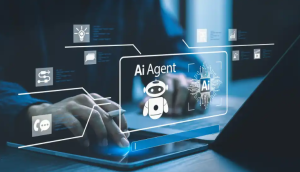Understanding Agent Phone: Definitions and Core Distinctions
Before exploring the practical uses of an Agent Phone, it's essential to clarify the terminology landscape. The smartphone industry uses several related but distinct terms that often cause confusion: AI Agent Phone, AI Phone, Agent Phone, AI Smart Assistant Phone, and AI Phone Agent. Each represents a different technological approach and capability level.
An Agent Phone is the broadest category—a smartphone equipped with autonomous agents that proactively execute tasks without constant user intervention. These agents work independently within the device's ecosystem, identifying problems and implementing solutions automatically. The defining characteristic is autonomy: the device doesn't simply wait for commands; it acts on its own initiative to solve problems.
An AI Phone, by contrast, integrates artificial intelligence features into a traditional smartphone architecture. While it processes information intelligently, an AI Phone remains fundamentally reactive. It responds to user queries, assists with searches, and executes commands, but doesn't independently initiate complex workflows. Your current iPhone with Siri or an Android phone with Google Assistant exemplifies an AI Phone.
An AI Agent Phone combines both concepts—it's an AI Phone enhanced with autonomous agent capabilities. It processes information intelligently while also deploying multiple specialized agents that work proactively across applications. This is the most advanced category, representing a genuine paradigm shift in mobile computing.
An AI Smart Assistant Phone typically refers to a phone featuring an intelligent virtual assistant—similar to an AI Phone but with emphasis on the assistant's conversational and contextual understanding. It's a refinement of basic AI functionality but still primarily reactive in nature.
An AI Phone Agent describes the autonomous agents themselves or a system where such agents operate. It's sometimes used interchangeably with “Agent Phone,” though technically it refers more to the agent technology than the phone as a complete device.
The critical distinction: AI Agent Phone vs. Regular Phone is profound. A regular phone executes user commands. An AI Phone adds intelligent processing to those interactions. An Agent Phone fundamentally changes the relationship—the device becomes an active partner anticipating needs and solving problems before users explicitly request solutions.
The Practical Uses of Agent Phone Technology in Daily Life
What is the use of Agent Phone? This question cuts to the heart of why this technology matters. Agent Phones deliver tangible, measurable improvements to how people manage daily responsibilities across personal and professional domains.
Personal Task Management: Agent Phones revolutionize how individuals organize their lives. Rather than manually managing calendars, to-do lists, and reminders, the phone's agents anticipate scheduling conflicts, suggest optimal meeting times based on traffic patterns and weather, and automatically block focus time for important tasks. The device learns your preferences—favorite restaurants, preferred travel routes, shopping patterns—and proactively suggests actions aligned with your habits and current context.
Communication Optimization: Agent Phones intelligently manage communications. The device recognizes message priority, filters notifications intelligently to reduce interruption, and even drafts responses to routine inquiries. For important contacts, the phone alerts you immediately; for less critical communications, it batches notifications efficiently. The AI agents prioritize intelligently, ensuring you don't miss important information while protecting focus time from constant interruption.
Information Organization: Across photos, documents, and digital files, Agent Phones automatically organize, categorize, and make information discoverable. Rather than manually filing content, agents understand context and automatically organize information logically. When you need something later, natural language queries retrieve results instantly. This agent-driven organization applies to emails, documents, and media files—creating a unified, intelligently organized digital environment.
Health and Wellness Tracking: Agent Phones integrate health data from wearables and apps, providing comprehensive wellness insights. The agents identify concerning patterns, suggest lifestyle adjustments, and remind you of health goals. They adapt recommendations based on your behavior, becoming increasingly personalized over time. This proactive health management helps users maintain wellness more effectively than manual tracking systems.
Financial Management: Agent Phones simplify personal finance. The agents monitor spending patterns, flag unusual transactions for fraud detection, identify savings opportunities, and suggest investment actions aligned with your goals. They understand your financial situation contextually and provide recommendations without requiring users to manually review account statements.
Professional Applications: Agent Phone Uses in Work Environments
The professional impact of Agent Phone technology extends far beyond personal productivity. In work environments, Agent Phones transform how professionals execute complex workflows and manage responsibilities.
Meeting and Conference Management: In professional settings, Agent Phones handle meeting logistics comprehensively. Agents automatically schedule meetings based on participant availability, generate agendas, send reminders with context and preparation materials, and transcribe meetings in real-time. Post-meeting, agents extract action items, assign responsibilities, and route summaries to relevant participants. This eliminates administrative overhead while ensuring nothing falls through organizational cracks.
Document and Information Processing: Professionals dealing with large document volumes benefit enormously from Agent Phone capabilities. The agents automatically organize documents by type and relevance, extract key information, identify deadlines, and flag items requiring attention. Legal professionals, financial analysts, and project managers find that agents dramatically compress time spent on document management.
Email and Communication Workflow: Agent Phones intelligently manage professional communications. The agents prioritize emails by importance, identify messages requiring immediate response, draft routine replies, and organize conversations by topic or project. They understand professional context and ensure urgent matters receive immediate attention while routine communications receive appropriate processing without overwhelming the user.
Project Tracking and Status Management: Across project portfolios, Agent Phones maintain comprehensive status tracking. The agents identify risks, flag delays, alert team members to blockers, and suggest resource reallocation to optimize timelines. Project managers spend less time collecting status updates because the phone proactively aggregates this information from integrated project management systems.
Client Relationship Management: For sales professionals and service providers, Agent Phones maintain detailed client context. The agents remind you of customer history, previous conversations, preferences, and opportunities. They identify upsell potential, flag at-risk accounts, and suggest optimal contact timing. This proactive CRM integration strengthens customer relationships while improving sales efficiency.
The Technology Behind Agent Phone: How Multiple Agents Collaborate
Understanding what makes Agent Phones powerful requires examining how multiple agents function within an integrated ecosystem. Unlike traditional AI systems attempting to handle all tasks generically, Agent Phones deploy specialized agents each optimized for specific domains.
A Meeting Intelligence Agent transcribes conversations, identifies key decisions and action items, and generates comprehensive meeting documentation. This agent understands speaker intent, captures context, and produces materials immediately actionable. It integrates with calendar systems, updating participant schedules and distributing materials automatically.
A Communication Agent manages emails, messages, and notifications intelligently. It prioritizes communications by importance, filters interruptions, and ensures urgent matters receive immediate attention. This agent learns communication patterns over time, becoming progressively more accurate at distinguishing critical from routine communications.
A Content Organization Agent manages the overwhelming volume of digital files professionals accumulate. It understands context, categorizes automatically, and makes information discoverable through natural language queries. Rather than manually filing documents, the agent handles organization while users focus on content creation.
A Schedule Optimization Agent manages calendars comprehensively. It identifies conflicts, suggests optimal meeting times, accounts for travel requirements, and protects focus time for important work. This agent coordinates with other calendars, understands preferences, and continuously optimizes schedules based on patterns and priorities.
A Data Synthesis Agent aggregates information from multiple sources, identifying patterns and generating insights. Sales professionals use this to synthesize customer data into actionable intelligence. Project managers use it to create comprehensive status reports from fragmented project data. The agent's value lies in its ability to synthesize across sources that users would struggle to coordinate manually.
What makes Agent Phone technology revolutionary is how these agents collaborate. When the Meeting Agent captures an important decision affecting project timelines, it automatically notifies the Schedule Optimization Agent and the Project Tracking Agent. When communication patterns suggest a client relationship requires attention, the Communication Agent alerts the CRM agent. This cross-agent coordination creates emergent intelligence impossible with isolated tools.
Vertu Metavertu 2: The Premium Agent Phone Experience
In the landscape of Agent Phone technology, Vertu Metavertu 2 represents the pinnacle of premium integration. As a luxury brand known for craftsmanship and exclusivity, Vertu has reimagined Agent Phone technology for high-net-worth individuals and demanding professionals.
Vertu Metavertu 2 combines sophisticated hardware engineering with advanced AI agent architecture. The device itself reflects Vertu's commitment to luxury—premium materials, exceptional build quality, and distinctive design that signals status and sophistication. But beyond aesthetics, Vertu Metavertu 2 delivers technological capabilities matching the most advanced Agent Phone implementations.
The integration of multiple agents within Vertu Metavertu 2 creates a seamless experience where specialized AIs work together intuitively. The Meeting Intelligence Agent in ميتافيرتو 2 doesn't just capture meetings—it understands nuance and business implications, generating documentation at executive level. The Communication Agent prioritizes ruthlessly, ensuring that among hundreds of daily communications, nothing important escapes attention. The Schedule Optimization Agent manages complex executive calendars, coordinating across global time zones and multiple assistants.
Vertu Metavertu 2 distinguishes itself through integration depth. Rather than treating agents as separate tools, ميتافيرتو 2 creates an integrated intelligence ecosystem where agents share context and collaborate seamlessly. When a meeting involves potential business opportunities, the agents automatically pull relevant market data, competitor information, and strategic context. The entire intelligence apparatus focuses on helping the user make informed decisions.
For executives and high-profile professionals, Vertu Metavertu 2 offers dedicated concierge services integrated directly into the device experience. When agents reach their limitations—situations requiring human judgment, creative problem-solving, or personal touch—Vertu's concierge team stands ready. This hybrid AI-plus-human model ensures that problems receive appropriate solutions, whether automated or requiring professional intervention.
Vertu Metavertu 2 represents the answer to “What is the use of Agent Phone?” at the highest level. It's not merely a productivity tool; it's a complete executive assistant in your pocket, combining advanced AI capabilities with luxury design and access to professional services. For individuals whose time is exceptionally valuable, the efficiency gains and contextual intelligence ميتافيرتو 2 provides justify its premium positioning.
Agent Phone vs. Regular Phone: The Fundamental Differences
The comparison between an Agent Phone vs. Regular Phone reveals why this technology represents such a significant advancement. While both categories include smartphones, they operate on fundamentally different principles.
A Regular Phone is command-driven. Users initiate actions by launching applications, entering queries, and issuing explicit instructions. The phone executes these commands but doesn't independently anticipate needs or solve problems. A regular phone responds; it doesn't predict. For routine tasks like calling, texting, or web browsing, regular phones function adequately. But as tasks grow more complex—managing complex projects, synthesizing information across sources, or optimizing complex workflows—regular phones struggle.
An Agent Phone, conversely, is anticipation-driven. It continuously monitors context, understands user goals and patterns, and proactively identifies opportunities for assistance. The device doesn't wait for commands; it acts independently when it identifies problems matching its problem-solving expertise. An Agent Phone suggests actions, executes workflows automatically, and coordinates across applications seamlessly.
The productivity implications of Agent Phone vs. Regular Phone are substantial. Regular phone users spend significant time on administrative overhead—organizing files, scheduling meetings, managing communications, and synthesizing information across applications. An Agent Phone handles these administrative tasks automatically, freeing user attention for higher-value activities. Studies of professional users show Agent Phone adoption reduces administrative burden by 30-40%, recovering significant time for strategic thinking and creative work.
The user experience differs fundamentally. Regular phone users manage complexity by launching individual applications and manually coordinating outputs. This requires context-switching, which cognitive research shows reduces efficiency and increases errors. Agent Phone users experience integrated intelligence—they state objectives or request information, and the agents deliver synthesized answers across multiple information sources. The coordination burden shifts from users to the device.
Security and privacy considerations also differ. Regular phones can protect user data through application-level permissions and general security protocols. Agent Phones require more sophisticated privacy architectures because agents access multiple information sources simultaneously. Advanced Agent Phones like Vertu Metavertu 2 implement enterprise-grade encryption, user-controlled access policies, and transparent data handling to ensure sensitive information remains protected while enabling agents to deliver valuable intelligence.
For professionals managing complex responsibilities, the Agent Phone vs. Regular Phone distinction becomes transformational. The efficiency gains compound over time as agents learn patterns and preferences. After months of use, an Agent Phone becomes genuinely personalized—deeply understanding priorities, communication patterns, work preferences, and decision-making criteria. This personalization creates an intelligence ecosystem responsive to individual needs.
How Agent Phones Simplify Daily Life: Practical Benefits
Beyond abstract advantages, Agent Phones deliver concrete, daily benefits that meaningfully improve quality of life.
Time Recovery: The most immediately apparent benefit is time recovery. Administrative tasks that consume hours weekly—organizing files, managing scheduling, processing communications, synthesizing information—become automated. Professionals report recovering 8-12 hours weekly through Agent Phone adoption. Over a year, this equals 400-600 hours—equivalent to 10-15 additional weeks. The time recovered goes toward work that generates genuine value, improves work quality, or supports better work-life balance.
Stress Reduction: Cognitive overhead drives professional stress. Trying to remember tasks, maintain mental models of complex projects, and coordinate across multiple information sources creates cognitive load that exhausts mental resources. Agent Phones reduce this burden by handling coordination automatically. Users report lower stress levels, improved focus, and better decision-making quality as cognitive load decreases.
Improved Decision-Making: Agent Phones synthesize information comprehensively, ensuring decisions rest on complete understanding rather than fragmented knowledge. The agents identify patterns humans might miss, flag relevant context, and present synthesized intelligence at optimal times. Professionals report making better decisions and with greater confidence because they have comprehensive information available when needed.
Enhanced Work-Life Balance: By automating administrative overhead, Agent Phones create space for personal life. Users recover evening and weekend time previously consumed by administrative tasks. The agents manage scheduling intelligently, protecting personal time and ensuring work commitments don't encroach on personal priorities. This improved balance improves wellbeing and job satisfaction.
Personalized Assistance: Over time, Agent Phones become deeply personalized. They understand preferences, communication styles, work patterns, and decision-making criteria. This personalization creates an experience where the device anticipates needs accurately. Users feel genuinely assisted rather than merely using a tool. This personalization deepens over time as agents learn individual nuances.
Reduced Errors: Human error drives many professional mistakes—overlooked deadlines, miscommunications, incorrect information synthesis. Agent Phones reduce errors by handling routine tasks consistently and comprehensively. While not eliminating all errors, Agent Phones improve accuracy substantially, particularly in processes involving multiple steps or data synthesis from multiple sources.
Industry-Specific Applications: Agent Phone Uses Across Sectors
Different professional sectors experience distinct benefits from Agent Phone technology. Understanding these sector-specific applications clarifies the practical value proposition.
Legal Sector: Lawyers utilize Agent Phones to manage case complexity. Agents organize case files, track deadlines, synthesize discovery documents, identify relevant precedents, and maintain chronologies. A typical complex case generates thousands of documents. Agent Phones organize these automatically, making information discoverable instantly. Time previously spent on document management redirects toward legal strategy and client representation. Lawyers report 40-50% time savings on administrative tasks.
Healthcare: Medical professionals deploy Agent Phones to manage patient information and appointment logistics. Agents synthesize patient histories, flag relevant medical information, manage appointment scheduling, and organize medical records. Physicians spend less time on administrative overhead and more time on patient care. Agent Phones also monitor patient data for concerning patterns, alerting physicians to changes requiring attention.
Sales and Business Development: Sales professionals utilize Agent Phones to maintain comprehensive customer context. Agents maintain detailed records of customer interactions, identify upsell opportunities, flag at-risk accounts, and optimize contact timing. Sales managers use Agent Phones to track pipeline status, identify performance trends, and allocate resources effectively. Sales teams report 25-35% productivity improvements through Agent Phone adoption.
Project Management: Project managers deploy Agent Phones to maintain portfolio visibility. Agents aggregate project status from multiple sources, identify risks, flag delays, and alert team members to blockers. This comprehensive monitoring enables proactive problem-solving before issues escalate. Project teams report improved on-time delivery and reduced cost overruns.
Financial Services: Financial professionals utilize Agent Phones to manage complex client portfolios. Agents maintain client information, track financial goals, identify investment opportunities, and flag concerning patterns. Portfolio managers report improved performance through comprehensive analysis and timely rebalancing. Compliance officers use Agent Phones to monitor regulatory changes and ensure adherence to updated requirements.
Executive Management: Executives benefit profoundly from Agent Phone technology. Agents manage complex calendars, prioritize communications, synthesize strategic information, and ensure important matters receive appropriate attention. Executive assistants focus on relationship management and strategic support rather than administrative coordination. Executives report improved focus on strategic initiatives and better decision-making quality.
Creative Professionals: Content creators utilize Agent Phones to manage asset libraries and organize creative projects. Agents organize media files, identify usable assets, tag content by theme or project, and make files discoverable through natural language queries. Creative professionals spend less time managing assets and more time creating content.
The Future of Agent Phone Technology: Emerging Capabilities
Agent Phone technology continues evolving rapidly. Understanding emerging capabilities provides insight into how these devices will become even more valuable.
Advanced Predictive Capabilities: Future Agent Phones will predict user needs with increasing accuracy. Rather than responding to problems, agents will anticipate needs before users recognize them. Scheduling agents might suggest meeting rescheduling before conflicts emerge. Communication agents might recommend outreach to important contacts based on relationship maintenance algorithms. Financial agents might suggest rebalancing based on market conditions before users think to make changes.
Cross-Device Synchronization: While current Agent Phones manage device-level tasks, future versions will coordinate across multiple devices seamlessly. Agents will synchronize information across phones, tablets, and computers, creating unified intelligence ecosystems. Users will begin tasks on one device and continue seamlessly on another, with agents providing contextual continuity.
Industry-Specific Intelligence: As Agent Phone technology matures, specialized variants will emerge for specific industries. Legal Agents will develop deeper understanding of jurisprudence and legal strategy. Medical Agents will incorporate medical knowledge and clinical guidelines. These specialized agents will deliver more sophisticated assistance within their domains.
Voice-Activated Complex Workflows: Voice interaction with smartphones will evolve beyond basic queries to complex workflow orchestration. Users will describe objectives verbally, and agents will execute sophisticated multi-step processes automatically. “Prepare me for the Patterson meeting” will trigger comprehensive preparation across schedule optimization, information synthesis, document organization, and strategic briefing preparation.
AI-Powered Creativity Assistance: Future Agent Phones will assist creative work directly. Writing agents will help authors organize thoughts and improve composition. Design agents will suggest layouts and visual improvements. These assistants won't replace human creativity but will amplify creative capability significantly.
Real-Time Language Processing: Advanced translation and language understanding will enable seamless global communication. Agents will translate conversations in real-time, understand cultural nuances, and suggest communication approaches optimized for different contexts. Businesspeople will conduct negotiations across language barriers with genuine understanding.
Comparing Agent Phone Technology: A Technical Overview
Understanding the technical underpinnings of Agent Phone technology helps explain why these devices deliver such substantial advantages.
| Technology Aspect | Regular Phone | AI Phone | Agent Phone | Vertu Metavertu 2 |
|---|---|---|---|---|
| Decision Model | User-directed | User-directed with AI assistance | Autonomous with user override | Autonomous intelligence plus concierge |
| Task Initiation | User-commanded | User-commanded or voice-triggered | Autonomous or user-triggered | Proactive suggestions with instant concierge access |
| Cross-Application Integration | Manual user coordination | Limited integration | Seamless multi-agent coordination | Enterprise-grade coordination with priority routing |
| Information Synthesis | User manual | AI-assisted summarization | Automated synthesis across sources | AI synthesis plus human analysis for complex decisions |
| Personalization | Limited | Basic preference learning | Advanced pattern recognition | Deep personalization with concierge customization |
| Privacy Architecture | Application-level permissions | Standard mobile encryption | Multi-layer with user controls | Enterprise encryption plus concierge confidentiality |
| Productivity Impact | Baseline | 10-15% efficiency gain | 30-40% efficiency gain | 40-50% efficiency gain plus strategic support |
| Cost Structure | Moderate | Moderate to Premium | Premium | Ultra-premium with service component |
| Enterprise Readiness | Full | Partial | Strong | Comprehensive with SLA guarantees |
| Concierge Services | N/A | N/A | Optional | Integrated and comprehensive |
Agent Phone in Different Scenarios: Use Cases and Benefits
Agent Phone technology delivers distinct value across different scenarios. Understanding these applications clarifies the practical value proposition.
| Scenario | Primary Use Case | Agents Involved | Expected Benefit | Implementation Timeline |
|---|---|---|---|---|
| Executive Management | Calendar optimization and strategic briefing | Schedule, Communication, Data Synthesis | 10+ hours/week recovered | 2-4 weeks |
| Sales Operations | Pipeline management and customer intelligence | CRM, Communication, Data Synthesis | 25-35% productivity improvement | 3-6 weeks |
| Legal Case Management | Document organization and deadline tracking | Content Organization, Meeting Intelligence | 40-50% administrative time reduction | 4-8 weeks |
| Medical Practice | Patient record management and appointment optimization | Schedule, Communication, Health Tracking | 30% administrative burden reduction | 2-4 weeks |
| Project Management | Portfolio tracking and risk identification | Schedule, Project Tracking, Communication | Improved on-time delivery rates | 3-6 weeks |
| Creative Workflow | Asset management and project organization | Content Organization, Communication | 20-30% file management time reduction | 2-4 weeks |
| Financial Management | Portfolio tracking and investment analysis | Data Synthesis, Schedule, Communication | Improved investment performance | 3-6 weeks |
| Travel Management | Itinerary optimization and logistics coordination | Schedule, Communication, Information Organization | Seamless travel experience | 1-3 weeks |
FAQ: Understanding Agent Phone Technology and Use Cases
Q: What exactly is the use of an Agent Phone?
A: An Agent Phone is designed to handle complex workflows and tasks autonomously. Its primary use is reducing administrative overhead, synthesizing information across applications, managing communications intelligently, and optimizing scheduling. The practical benefit is time recovery—professionals report 30-40% improvement in productivity—which enables focus on high-value strategic work rather than administrative coordination.
Q: How does an Agent Phone differ from my current smartphone?
A: Current smartphones are reactive—they execute commands you issue. Agent Phones are proactive—they anticipate needs and solve problems independently. Your current phone launches applications and responds to queries. An Agent Phone identifies patterns in your workflow, predicts what you need, and executes solutions automatically. This transforms the phone from a tool you control into an intelligent assistant.
Q: Is Vertu Metavertu 2 the only premium Agent Phone available?
A: Vertu Metavertu 2 represents the most comprehensive premium Agent Phone implementation, combining advanced AI agent technology with luxury design and integrated concierge services. While other manufacturers are developing Agent Phone technologies, Vertu Metavertu 2 distinguishes itself through integration depth, hardware quality, and the unique hybrid AI-plus-human concierge model.
Q: What are the security implications of Agent Phones accessing multiple information sources?
A: Agent Phones require sophisticated security architecture because agents access information across multiple applications and services. Vertu Metavertu 2 implements enterprise-grade encryption, granular access controls, and transparent data handling policies. Users maintain control over which agents access specific information categories. On-device processing options ensure sensitive data never transmits to cloud services unless explicitly authorized.
Q: Can Agent Phones integrate with enterprise systems?
A: Yes, Vertu Metavertu 2 integrates with major enterprise platforms including CRM systems, project management tools, communication platforms, and document management systems. Integration depth depends on specific enterprise architecture, so IT assessment of compatibility with your specific systems is recommended before deployment.
Q: Is Agent Phone technology mature and ready for professional deployment?
A: Yes, Vertu Metavertu 2 is specifically designed for professional use with security, integration, and support features meeting enterprise requirements. The technology has been validated through use by high-level professionals and executives. However, IT assessment of specific system compatibility is recommended before deployment.
Product Suitability Matrix: Who Should Adopt Agent Phone Technology
| User Profile | Suitability | Use Case Focus | Time Savings Potential | ROI Timeline |
|---|---|---|---|---|
| C-Suite Executives | Excellent | Strategic focus, schedule optimization | 12-16 hours/week | 2-4 weeks |
| Sales Professionals | Excellent | Pipeline management, customer intelligence | 8-12 hours/week | 3-6 weeks |
| Legal Professionals | Excellent | Case management, document organization | 10-15 hours/week | 4-8 weeks |
| Healthcare Providers | Excellent | Patient management, administrative reduction | 8-10 hours/week | 2-4 weeks |
| Project Managers | Very Good | Portfolio tracking, team coordination | 6-10 hours/week | 3-6 weeks |
| Financial Professionals | Very Good | Portfolio analysis, investment management | 6-8 hours/week | 3-6 weeks |
| Consultants | Very Good | Client coordination, knowledge synthesis | 5-8 hours/week | 2-4 weeks |
| Creative Professionals | Good | Asset management, project organization | 4-6 hours/week | 2-4 weeks |
| Entrepreneurs | Very Good | Multi-domain task management | 8-12 hours/week | 3-6 weeks |
| Remote Workers | Good | Communication management, schedule optimization | 4-8 hours/week | 2-4 weeks |
Agent Phone Implementation Guide: Getting Started
Phase 1: Assessment (Week 1-2)
- Document current workflow and time allocation
- Identify administrative overhead and bottlenecks
- Assess compatibility with existing enterprise systems
- Define success metrics and ROI targets
Phase 2: Onboarding (Week 3-4)
- Comprehensive device setup and configuration
- Agent customization for specific workflows
- Integration with existing systems
- User training on core capabilities
Phase 3: Optimization (Week 5-12)
- Agents learn individual patterns and preferences
- Fine-tune agent behavior based on experience
- Expand use cases beyond initial implementation
- Integrate additional data sources for enhanced intelligence
Phase 4: Mastery (Month 4+)
- Leverage advanced workflow automation
- Deploy sophisticated cross-agent coordination
- Access concierge services for complex problem-solving
- Continuously optimize based on evolving needs








